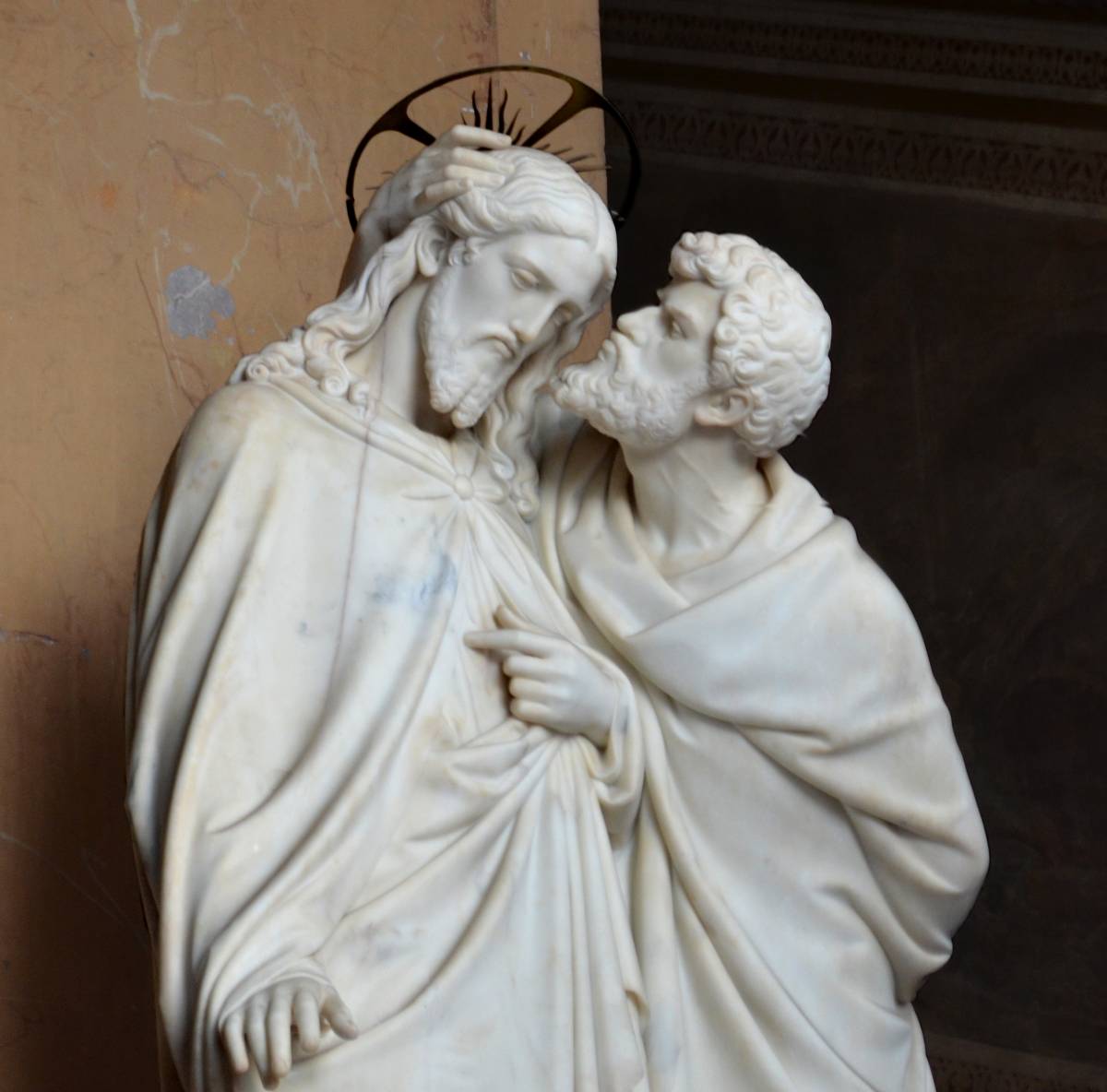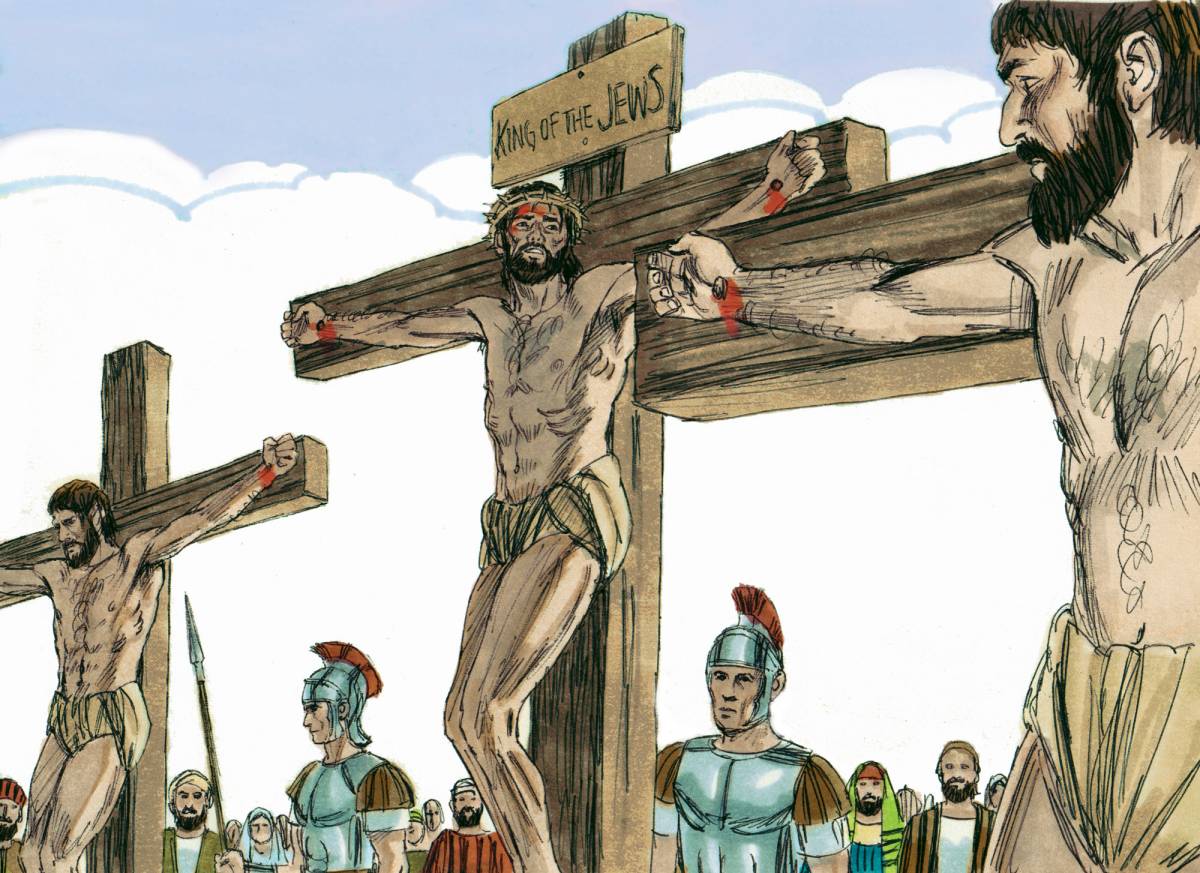Repentance Or Not- A Choice
To deny God’s love and mercy, or to trust in it with our whole being, is always before us.
The following description of God is found no less than nine times in the Old Testament, more than any other text: The Lord is gracious and compassionate, slow to anger, abounding in loving kindness and mercy.” This is a revelation about the nature of God to us. God always remains true to his nature, even in the face of our betrayals, our indifference, and our forgetfulness. His love and compassion for us never wanes. His kindness and mercy toward those who return to him is instant, sure, true, and absolute. It never fails.

Our nature, unlike that of God’s, is fickle, flawed and broken. Just as our sins are matters of our willful choices alone, so too are our willing choices to turn back to God in humble repentance. The whole of the Bible is a long story about our fallen nature, our seemingly endless sinful choices, and their terrible consequences, and about God’s constant, ever-faithful and generous love, mercy, and forgiveness. The Incarnation of Jesus is the ultimate expression of God’s faithful and infinite capacity for graciousness, compassion, love, and kindness. Who could have more reason for righteous anger than God whose generous, unconditional love is so readily and so often spurned by our willful choices to turn away from it, to forget it, or ignore it, and even to reject it? He endures all of our self-righteous arrogance, our rebelliousness, yet, when we turn back to him in humble recognition of our sins, filled with the desire to repent, He always responds instantly with unconditional love and mercy.
The reality is that we are all sinners. We have all abused God’s love for us in many ways for our selfish reasons. Shakespeare, with poetic wisdom, writes in his play, A Midsummer Night’s Dream, “Lord, what fools these mortals be.” For, in turning away from such compassion, love and mercy, we are nothing less than fools. Though we may say, arrogantly, that we do not suffer fools gladly, the opposite is true about God. He not only suffers us gladly, he redeems us from our foolishness with nothing less than merciful forgiveness and compassion.

Let me give two examples from Luke’s Gospel of this idea of both the foolishness and the liberating power of our free “choices”. The first example is seen in the form of two separate betrayals of Jesus. The first example is Judas’ betrayal of Jesus with a kiss (Lk. 22: 48), and the second is Peter’s three betrayals of Jesus in the dark hours before the cock crowed at the coming dawn the morning after Jesus’ arrest (Lk 22: 54-62). These sins of betrayal against Jesus are equal in their weight, though different in their reasons. We can imagine that they both caused Jesus a deeper suffering than all of the physical pains he would endure over the last few hours of his life. These were betrayals of his love and friendship. These sins were willful choices made by both men.
But there was another, even more consequential choice, that each man made. The final choice that Judas made was foolish in that he did not believe in the mercy of God. He committed the sin of presumption, that is, he did not believe that God could or would forgive him and took his own life in despair. Peter, though he had denied Jesus three times out of fear for his own life, chose, in the end, to trust in the love and mercy of God. When he had realized the depths of his betrayal of Jesus, “he went out and began to weep bitterly.” He knew the depths of sorrow and repentance. He turned back to Jesus, knowing his need for forgiveness, trusting in Jesus’ love and mercy. For this reason he went on to become one of the greatest of saints.
Yet another example is found in the choices of the two criminals hanging on the crosses to the right and the left of Jesus at his crucifixion. Both had chosen foolishly to sin, to commit crimes great enough in those times to deserve capital punishment. One remains a fool, joining in with the jeering crowd, chiding Jesus to prove he is who he says he is, “Are you not the Messiah. Save yourself, and us” (Lk 23: 39). The other criminal, in a moment of graced self-recognition, rebukes his fellow criminal saying, “Have you no fear of God, for you are subject to the same condemnation? And indeed, we have been condemned justly, for the sentence we received corresponds to our crimes, but this man has done nothing criminal” (vs. 40-41). He then turns to Jesus recognizing who Jesus is (as we all can choose to do) and says, “Jesus, remember me when you come into your kingdom” (v. 42). Jesus says to this repentant sinner (and he says it to us when we turn back to him trusting in his infinite love and mercy), “Amen, I say to you, today you will be with me in Paradise” (v. 43).

Sin is a choice with its consequences. Repentance is a choice, with an entirely different consequence. The choice between being foolish and arrogant before God, or being wise and humble; to deny God’s love and mercy, or to trust in it with our whole being, is always before us. “I have placed before you life and death, the blessing and the curse. Choose life so that you may live, you and your descendants” (Deut. 30: 19).
SKM: below-content placeholderWhizzco for FHB

